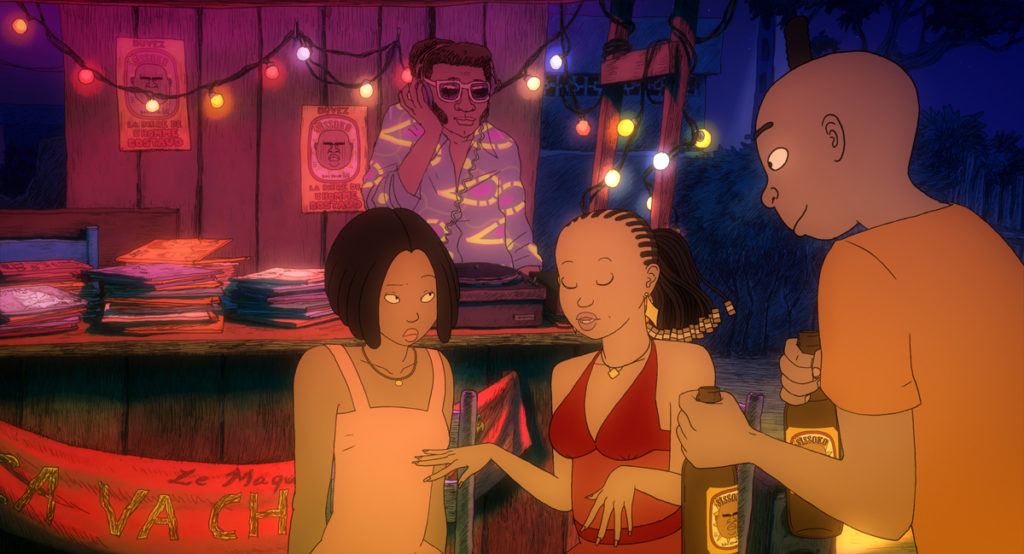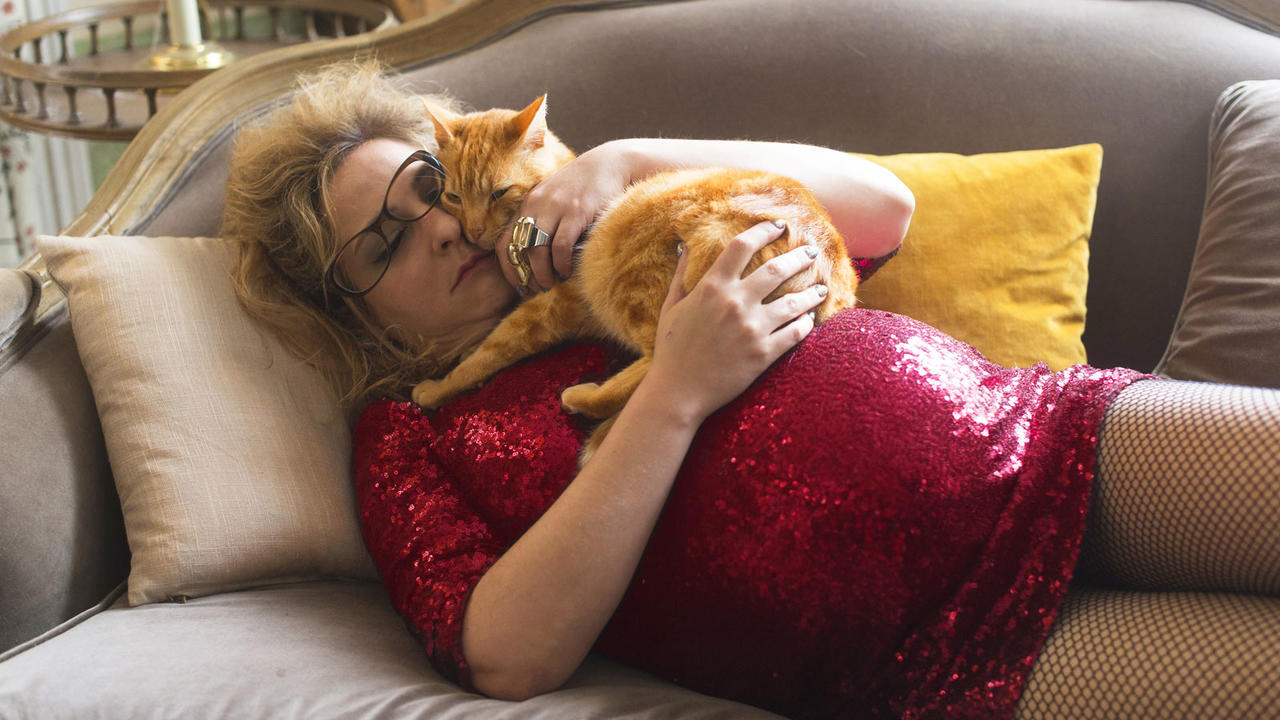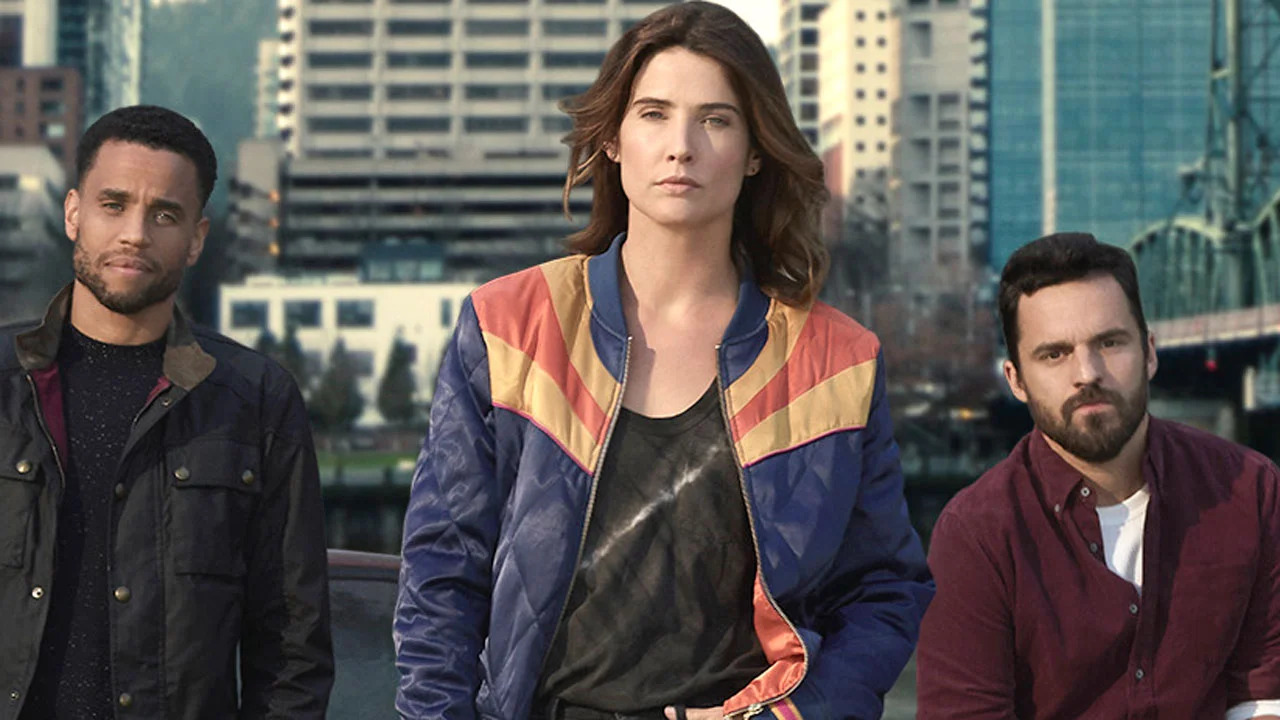Based on Marguerite Abouet’s memories of her childhood as well as a tribute to her home country, Aya: Life in Yop City, with art by Clement Ouberie, follows the ups and downs of a group of friends (and their families) in the Ivory Coast of the late ’70s. It’s centered around the level-headed 19-year-old Aya and her two friends, Adjoua and Bintou, who are much more interested in boys than studying.

The comic is pretty episodic — while one storyline leads to the next, it’s definitely more of a slice-of-life than a tale that has a beginning, middle, and end. While Aya is the title character, most plotlines aren’t really about her, mostly because she’s too smart to get into too much trouble.
There is some serious drama (unplanned pregnancies! infidelity!) but Abouet’s writing is spirited and kind and Ouberie’s art gives the book levity. It doesn’t shy away from serious topics, but it never gets bogged down by them. This is just everyday life for these people.
Abouet and Ouberie work well together and bring out the other’s strengths. Abouet’s attention to detail sometimes makes the book feel slow but it’s also the minutia that creates a vivid reality. Ouberie’s lines are loose and expressive and he crafts a world that feels casual and lived-in.
Given Ouberie’s style, the choice to adapt Aya as an animated film makes sense, and Aya of Yop City (2012, directed by Abouet and Ouberie) is a lot of fun. It’s a pretty direct adaptation of the comic, but one that leans much more on the humor of the book. That’s not a bad choice, though. It would’ve been easy to make this into more of a soap opera, but by keeping the tone light, it lets the movie and these characters be joyful in their lives, regardless of what they face.
The comic is funny, to be fair, but the movie just feels a bit looser and more playful as it heightens the slapstick elements and the absurdities of everyday life. In the comic, when we first see Adjoua’s baby, it’s certainly a good visual gag since it’s obvious that the father isn’t who she claims he is. However, in the movie, the moment is such a hilarious reveal (and the baby continues to be funny every time we see him). Moments with the overbearing Bonaventure Sissoko and his foolish son Moussa become more outsized when animated.
The voice cast — all French-speaking Africans or French people of African descent — is strong and definitely adds to the comedy.
While it mirrors the comic’s episodic structure, it does end on a slightly weird note, like they just ran out of time. The comic wraps up with Aya heading to university to become a doctor (presumably) but the movie ends with Aya’s father’s mistress, Jeanne, dropping their children off at his house and departing. I didn’t necessarily need the Miss Yopougon pageant or the subplot about the closeted hairdresser, Inno, but I would’ve liked to have seen some closure for these characters in the movie.
The first time I watched Aya of Yop City, I did feel like it didn’t quite capture the more thoughtful elements of the comic, but it had been a while since I read it. This time, having just read the comic again, I think the movie is right to make this into much more of a comedy. I didn’t mind that some of the more serious parts were sacrificed. Comics and movies (even animated ones) aren’t the same things. I think these two versions of Aya — while not that different — are great companions for each other. Read the book and watch the movie.




